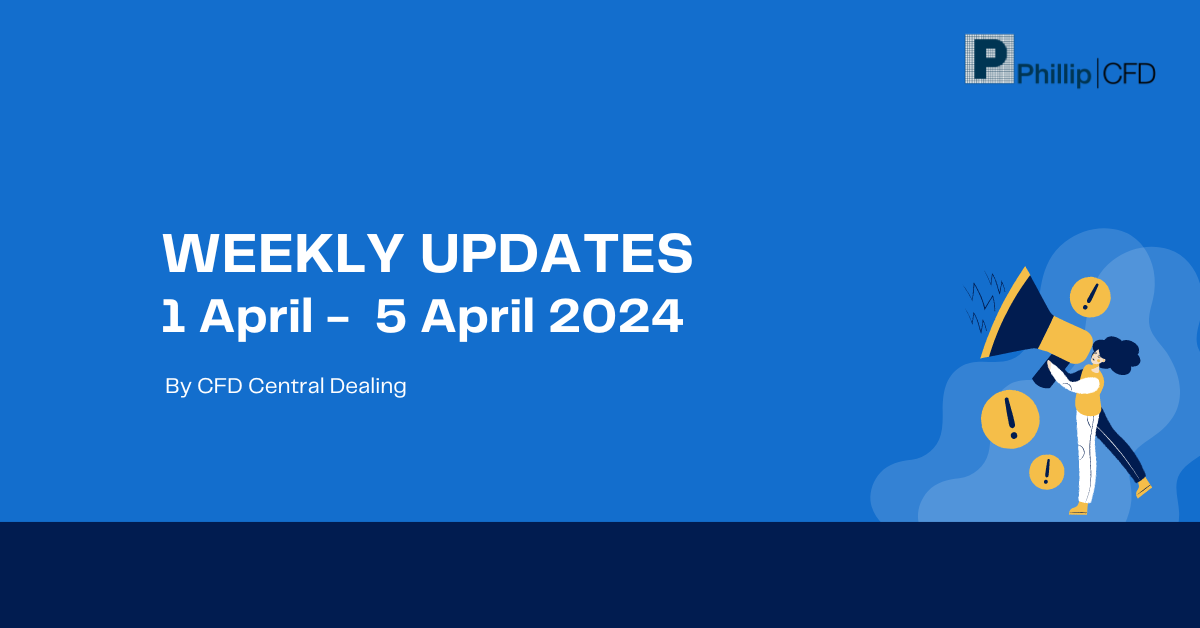Adverse selection
Table of Contents
Adverse selection
The vendor and the buyer should both enter a transaction with an equal level of knowledge. The term “adverse selection” describes a situation in which the buyer or the seller knows a component of product quality that the other party does not. Comprehending adverse selection if you work in insurance, economics, or a similar field is critical because it could impact your transactions.
What is adverse selection?
A situation in which sellers know that buyers do not, or vice versa, regarding a certain feature of product quality. is referred to as adverse selection. So, those who work in hazardous environments or lead high-risk lives are more likely to buy life or disability insurance, knowing they will likely be able to use it.
Moreover, a seller may be more knowledgeable than a consumer about the goods and services being supplied, which would disadvantage the buyer in the deal. Adverse selection may be seen in markets for insurance or used cars.
Understanding adverse selection
Adverse selection occurs when one party to a transaction has more precise knowledge than the other. The side with more information will profit more from the deal, which disadvantages the other party with less accurate information. The price charged for particular goods or services is inefficient due to information asymmetry. These circumstances might happen in the insurance industry, the capital market, and regular marketplaces.
Insurers have discovered that high-risk individuals are more apt to purchase policies and make heftier premium payments in the insurance industry. The business suffers a financial loss by disbursing more benefits if it charges a low price but only high-risk customers purchase. Yet, the company has more money to pay such benefits because high-risk policyholders pay higher premiums.
A life insurance provider, for instance, raises premiums for race car drivers. Residents of high-crime areas who get auto insurance from a company are charged more. Similarly, a health insurance provider sets higher premiums for some customers.
Consequence of adverse selection
Depending on the circumstance, adverse selection may harm buyers and sellers. It may lead to differences in how a good or service is valued, impacting transactions. For instance, if a seller conceals a product problem from the buyer despite being aware of it, the buyer may end up with a product that falls short of his needs or expectations.
The seller may have difficulties since potential customers can decide not to buy if they can’t discern the real value of a good or service. Adverse selection can have significant market effects in the insurance industry. High-risk purchasers who hide information to obtain lower premiums might cause a company to face serious financial problems.
As a result, fewer insurance providers will be in the market, which raises costs for low-risk customers. Ultimately, adverse selection may result in a market with fewer options and higher rates for low-risk consumers.
Adverse selection between buyer and seller
When a buyer plans to acquire a service or good from a seller, but the seller knows more about the good or service, this is known as adverse selection. The buyer is disadvantaged in this scenario since he is entering into a contract with a seller who might not be prepared to disclose all the details regarding the offered object.
Adverse selection in the capital markets
Some securities are more vulnerable to adverse selection than others in the capital markets. For instance, a fast-growing business might charge a premium price for equity when selling it to investors in the capital markets. The investor is subjected to adverse selection if the capital market managers possess inside knowledge about the company that outside investors are unaware of.
Frequently Asked Questions
Due to the information asymmetry in the market caused by customers’ lack of access to the seller or producer-held information, adverse selection drives up costs. While consumers may be cautious about the quality of the goods offered for sale, this may also result in lower consumption.
Adverse selection occurs when the pool of potential customers or employees from which a company must choose is not representative of the population as a whole. This can lead to a situation where the company is unable to accurately assess the risks and rewards associated with a given customer or employee, leading to suboptimal outcomes for both the company and the individual.
In the context of insurance, for example, adverse selection can lead to a situation where sick people are more likely to buy insurance than healthy people, leading to higher premiums and a death spiral for the insurance company.
The lemon problem, which asserts that used car buyers can’t tell the difference between a nice used automobile (a peach) and a lousy used car (a lemon), leads them to pay the average of the two while hoping for the best, is the most famous example of adverse selection.
There are a few potential solutions to adverse selection in markets. One is to have better information available to buyers and sellers. Additionally, insurance companies restrict coverage or raise prices to reduce exposure to major claims.
For example, if people are buying health insurance, there could be a requirement that everyone purchase a basic level of coverage. This would help to ensure that people are not choosing insurance plans that only cover the healthiest individuals.
It is also possible to directly address the problem of adverse selection through regulation. For example, the government could impose minimum standards on insurance plans or set up a risk classification system to help ensure that people are not choosing policies that do not meet their needs.
Moral hazard mostly affects transactions before they happen. After a transaction, adverse selection is mostly a problem. Asymmetry in information leads to moral hazard. Moral hazard is eliminated when adverse selection is eliminated.
Grouping high-risk persons and charging them greater fees are one-way insurance firms might avoid adverse selection.
Related Terms
- Trailing Stops
- Exchange Control
- Relevant Cost
- Dow Theory
- Hyperdeflation
- Hope Credit
- Futures contracts
- Human capital
- Subrogation
- Qualifying Annuity
- Strategic Alliance
- Probate Court
- Procurement
- Holding company
- Harmonic mean
- Trailing Stops
- Exchange Control
- Relevant Cost
- Dow Theory
- Hyperdeflation
- Hope Credit
- Futures contracts
- Human capital
- Subrogation
- Qualifying Annuity
- Strategic Alliance
- Probate Court
- Procurement
- Holding company
- Harmonic mean
- Income protection insurance
- Recession
- Savings Ratios
- Pump and dump
- Total Debt Servicing Ratio
- Debt to Asset Ratio
- Liquid Assets to Net Worth Ratio
- Liquidity Ratio
- Personal financial ratios
- T-bills
- Payroll deduction plan
- Operating expenses
- Demand elasticity
- Deferred compensation
- Conflict theory
- Acid-test ratio
- Withholding Tax
- Benchmark index
- Double Taxation Relief
- Debtor Risk
- Securitization
- Yield on Distribution
- Currency Swap
- Overcollateralization
- Efficient Frontier
- Listing Rules
- Green Shoe Options
- Accrued Interest
- Market Order
- Accrued Expenses
- Target Leverage Ratio
- Acceptance Credit
- Balloon Interest
- Abridged Prospectus
- Data Tagging
- Perpetuity
- Hybrid annuity
- Investor fallout
- Intermediated market
- Information-less trades
- Back Months
- Adjusted Futures Price
- Expected maturity date
- Excess spread
- Quantitative tightening
- Accreted Value
- Equity Clawback
- Soft Dollar Broker
- Stagnation
- Replenishment
- Decoupling
- Holding period
- Regression analysis
- Wealth manager
- Financial plan
- Adequacy of coverage
- Actual market
- Credit risk
- Insurance
- Financial independence
- Annual report
- Financial management
- Ageing schedule
- Global indices
- Folio number
- Accrual basis
- Liquidity risk
- Quick Ratio
- Unearned Income
- Sustainability
- Value at Risk
- Vertical Financial Analysis
- Residual maturity
- Operating Margin
- Trust deed
- Leverage
- Profit and Loss Statement
- Junior Market
- Affinity fraud
- Base currency
- Working capital
- Individual Savings Account
- Redemption yield
- Net profit margin
- Fringe benefits
- Fiscal policy
- Escrow
- Externality
- Multi-level marketing
- Joint tenancy
- Liquidity coverage ratio
- Hurdle rate
- Kiddie tax
- Giffen Goods
- Keynesian economics
- EBITA
- Risk Tolerance
- Disbursement
- Bayes’ Theorem
- Amalgamation
- Contribution Margin
- Accounting Equation
- Value chain
- Gross Income
- Net present value
- Liability
- Leverage ratio
- Inventory turnover
- Gross margin
- Collateral
- Being Bearish
- Being Bullish
- Commodity
- Exchange rate
- Basis point
- Inception date
- Riskometer
- Trigger Option
- Zeta model
- Racketeering
- Market Indexes
- Short Selling
- Quartile rank
- Defeasance
- Cut-off-time
- Business-to-Consumer
- Bankruptcy
- Acquisition
- Turnover Ratio
- Indexation
- Fiduciary responsibility
- Benchmark
- Pegging
- Illiquidity
- Backwardation
- Backup Withholding
- Buyout
- Beneficial owner
- Contingent deferred sales charge
- Exchange privilege
- Asset allocation
- Maturity distribution
- Letter of Intent
- Emerging Markets
- Consensus Estimate
- Cash Settlement
- Cash Flow
- Capital Lease Obligations
- Book-to-Bill-Ratio
- Capital Gains or Losses
- Balance Sheet
- Capital Lease
Most Popular Terms
Other Terms
- Physical ETF
- Initial Public Offering
- Buyback
- Secondary Sharing
- Bookrunner
- Notional amount
- Negative convexity
- Jumbo pools
- Inverse floater
- Forward Swap
- Underwriting risk
- Reinvestment risk
- Final Maturity Date
- Payment Date
- Secondary Market
- Margin Requirement
- Mark-to-market
- Pledged Asset
- Yield Pickup
- Subordinated Debt
- Treasury Stock Method
- Stochastic Oscillator
- Bullet Bonds
- Basket Trade
- Contrarian Strategy
- Notional Value
- Speculation
- Stub
- Trading Volume
- Going Long
- Pink sheet stocks
- Rand cost averaging
- Sustainable investment
- Stop-limit sell order
- Economic Bubble
- Ask Price
- Constant prepayment rate
- Covenants
- Stock symbol
- Companion tranche
- Synthetic replication
- Bourse
- Beneficiary
- Witching Hour
- Widow and Orphan stock
- Public Float
- Closing Price
- Reverse stock splits
- Quiet period
- Prepayment risk
Know More about
Tools/Educational Resources
Markets Offered by POEMS
Read the Latest Market Journal

Back in Business: The Return of IPOs & Top Traded Counters in March 2024
Start trading on POEMS! Open a free account here! At a glance: Major indices continue...

Weekly Updates 15/4/24 – 19/4/24
This weekly update is designed to help you stay informed and relate economic and company...

From $50 to $100: Unveiling the Impact of Inflation
In recent years, inflation has become a hot topic, evoking strong emotions as the cost...

Japan’s Economic Resurgence: Unveiling the Tailwinds Behind Nikkei 225’s Record Leap
Source: eSignal, Intercontinental Exchange, Inc. In the heart of Japan’s economic landscape, the Nikkei 225...

Weekly Updates 8/4/24 – 12/4/24
This weekly update is designed to help you stay informed and relate economic and...

What Makes Forex Trading Attractive?
In a world where the click of a button can send goods across oceans and...

Weekly Updates 1/4/24 – 5/4/24
This weekly update is designed to help you stay informed and relate economic and company...

How to soar higher with Positive Carry!
As US Fed interest rates are predicted to rise 6 times this year, it’s best...












